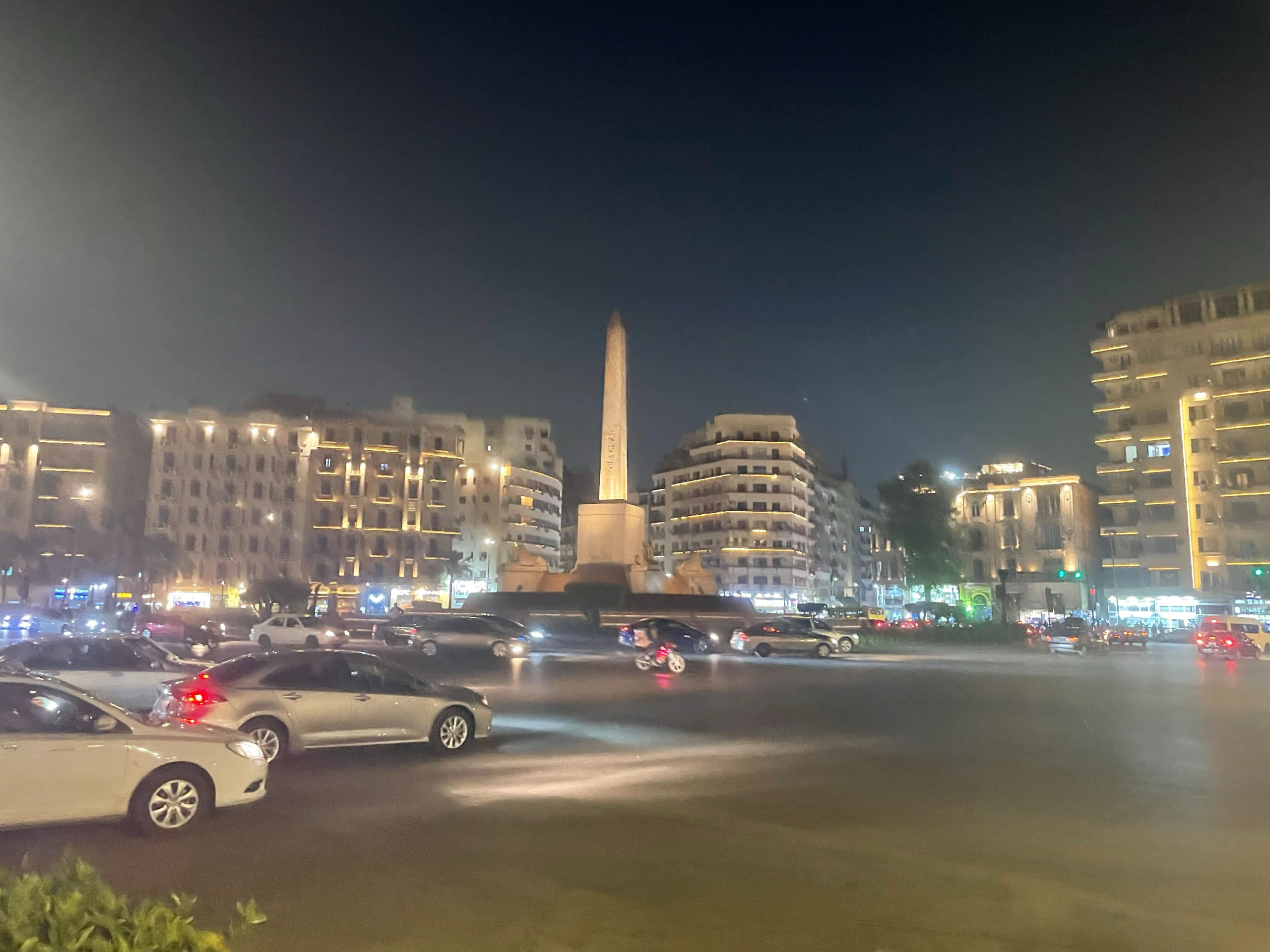
Tradition at a cost: Three Oxford Colleges and their choir schools

When the University of Oxford released its 2020 Admissions Statistics Report, it should not have made particularly positive reading for Magdalen College. Of all undergraduate colleges, Magdalen had admitted the lowest proportion of state-educated pupils in the preceding three years. The College seemed determined to put on a brave face, though, releasing a statement in which the only reference made to school-type was to point out that the College’s numbers had improved by more than the University average. Fast forward to 2023, and Magdalen’s dubious crown ended up on the other side of Longwall Street. Despite the University’s state-educated intake increasing markedly in the intervening years, the proportion at New College had decreased. It was to the College’s credit, at least, that its statement met the issue head-on: “New College had the lowest proportion of state-educated students … and one of the lowest proportions of students from economically disadvantaged backgrounds.” Both responses at least seem better than Christ Church’s. Placed at the bottom of the 2021 version of this one of many league-tables, that college saw fit to release no statement at all.
This much is no surprise. We all already know that these are some of the richest, grandest colleges, and that very often seem stuck in ways most other colleges have left behind. Despite this, almost nothing has been said about the examples of this that are closest to home: they are alone in Oxford in having run their own private schools. Part of the reason for this is that the colleges barely mention the existence of the schools in their public-facing material. I have a hard time remembering when I was first aware of them; I certainly wasn’t at the time I applied to New. When the Warden gave his welcome speech in freshers’ week, though, he spoke about his responsibility to “the school” as if it were just a natural part of any college, as though it were something of which we were all already aware and accepting. But if you start looking into them it doesn’t take long to find attitudes a long way from those projected to prospective applicants. The Director of Educational Partnerships at New College School proudly reposts a Telegraph article about a scheme she leads. The headline reads “Seven-year-olds will be given lessons on resisting cancel culture”, which perhaps gives a flavour of the school’s ethos. More generally, too, it does begin to feel like balancing a commitment to broadening access to education alongside an involvement with exclusive schools looks increasingly tenuous and feels harder for anyone to ignore. For example, an anonymous source Magdalen College School tells me: “we were advised not to apply to Magdalen College. There was a possibility it would be more difficult because of the optics.”
I wanted to understand how and why these schools exist. It would have been more sensational to find a back door into Oxford. In true English fashion, though, these educational inequalities are less fantastical, and perhaps for this reason more intractable. What I found is a set of institutions who rely on cultivating a sense that the way things work is just how they have always done. They can run in peace because no one stops to ask whether what they are doing is really what they ought to be doing. My aim in this is not to convince anyone of a certain plan of action, but rather to bring to light realities about which each of us can decide our stance, and, crucially, to show that the current set-up is itself a stance taken. This is something many seem to avoid. While writing this, I ran into the Headmaster of New Colleges School as he was leaving an event on the main college site. I asked him if he would be open to discussion, but he told me that all he did was run the school, and that I’d be better off talking to the Warden. He has yet to reply to my email.
Here’s the official line. The reason these schools were established was to provide trebles for their Colleges’ choirs. Still today, boys who attend Magdalen College School, New College School, and Christ Church Cathedral School sing for their namesakes’ choirs, joining a mix of undergraduates and professional singers in harmony. Of course, female students could take these roles, but, as an undergraduate member of one of these choirs told me, the uniqueness of the arrangement was part of the point: “They look like cherubs basically. I think it’s seen as such a unique and intriguing thing that it therefore plays into the prestige of those foundations. There are definitely places in Oxford and Cambridge where you have really good singing just being done by undergraduates without this kind of boy treble fantasy. But I think that it adds a certain air of amazement that you can kind of discipline kids who are 10 or 11 years old to fit into a professional setup. It is one of the things that foreign audiences are most interested in about English choirs: the idea that, since the 14th century, there’s just been this elite core of little boys that can sing really well. That’s something that just doesn’t exist in the same way anywhere else.”
If the choir boys add prestige to the colleges, the choir schools use the colleges as one of their main selling points. On a section of its website entitled “Benefits of Christ Church”, CCCS boasts that “To be educated in such an environment will, I believe, have a profound effect on young minds.” NCS has similar: “With ready access to one of Oxford’s most historic and beautiful colleges, New College School benefits from inspirational surroundings.” This is not just spin. Head to Magdalen roundabout, where the University announces itself with the emblematic Magdalen Tower, and you would be hard pressed not to notice MCS. If you get to the other side of the University’s historic centre you will find yourself beneath Tom Tower. Before you can get over Folly Bridge, though, you’ll be met with proud banners announcing CCCS open days.
But this simple account obscures a more complex history. That history shows that these relationships have been and so could be altered drastically. All the schools used to be located within college walls, and, at New College, schoolboys were originally used as servants in the college dining hall. Only in the 20th century did the schools’ remits really develop beyond the provision of choristers, yet now choristers make up only a small proportion at each school. When William of Wykeham founded New College in 1379, he wrote into its statutes that “there shall be sixteen poor and needy boys less than twelve years of age” who would be “admitted to our College out of Charity.” Now, roughly 650 years later, with over 100 boys at the school, the 16 choristers are a tiny minority. A year of fees cost about the same as an undergraduate degree. And, if I’m being nitpicky, they educate to 13 (conveniently, when the public schools can take over).
Just as the colleges reacted differently to embarrassing admissions statistics, so too has their handling of the choir school question diverged. In the 1980s, The Fellowship of the Magdalen College voted to sever its ties. The School would continue to provide choristers, but it separated its finances and became organisationally independent. Beyond the Choir, the relationship was to be little more than a name. Compare this to New College in the following decade, when the Warden of the College was made the ex officio chair of the governing committee. Following this, the School secured for itself a “college day” in which, according to the website, “the boys get the run of the College.”
Despite the possibility of change that this history makes clear, the Colleges’ finances show the schools are still very much intertwined. Christ Church’s 2022 financial report states that “The Cathedral School made a loss before depreciation of £84K.” It seems from this that Christ Church’s other income streams have essentially made it possible for the School to run. Financial control of NCS by the College also means that Fellows are entitled to a 50% reduction in school fees, should they wish to send their children there. If these are not dirty secrets, they are at least realities that neither college is eager to have widely known. But Magdalen’s financial separation does not lead to a good look either. Unlike New College and Christ Church, Magdalen cannot simply decrease the fees of choristers to MCS, since the school is its own financial entity with its own books to balance. Instead, the college pays a significant contribution towards the standard £22,236 per year that all junior school pupils owe. So, the College reported in 2023 “payments to Magdalen College School, Oxford of £216,375, as a contribution towards the education of the College’s choristers.”
All the reports make clear that expenditure on the choir schools is a key part of their mission as charities. For example, New College states that one of its contributions to public benefit (something all charities must prove) is “the maintenance of the English choral tradition.” I wonder what exactly it is about all-boys prep schools that makes them necessary to this tradition. What is stopping the choirs teaching children from any school to sing? It is worth noting that Jesus College, Cambridge manages to maintain a choir with boys in the front row while Merton College, Oxford does so with girls, and yet neither of them require choristers to attend a specific school in order to participate. In material from the choral foundations, one reads over and over again what a wonderful opportunity it is for the choristers. At the College’s expense, they are trained to a professional standard of singing before they reach 13. In a promotional video for Magdalen Choir, the Director of Music describes it as a “tremendous experience” that will be enormously valuable even to those who don’t pursue music any further. So why must this opportunity be restricted to the children of parents who are both able and willing to pay for a single-sex private school? If you read the founding statutes of Christ Church, you will find that Fellows can choose to run a choir school “at [their] discretion from time to time, and on such terms as it shall decide,” so there is clearly a lot of leeway in the arrangement. They don’t even need to provide a school, and, if they do, it can take whatever form and funding they deem necessary. I can’t help but be disappointed about the type of school they have chosen. The only way I can make sense of it is if the core of the English choral tradition is about maintaining exclusivity.
So much for reading reports. More striking are the particular stories of these arrangements. Recently, New College built the Gradel Quadrangles to house its Third Year students in college accommodation. The new buildings are on the same land as the school, so the college took the chance to renovate NCS. The student section of the project saw delays, leading to the housing of most Third Years in the Leonardo Royal Hotel, more than an hour’s walk from the main site. If any of them happened to read the 2023 edition of the New College Record, they would not have been delighted to find this admission from the Home Bursar: “Our contractor and professional team put in a huge effort over the summer to complete the school in readiness for opening its doors in September… The Herculean effort to complete the school contributed in part to time being lost on the student accommodation.” Colleges are supposed to be world-leading institutions providing the most focused tertiary education in the country. Why did New College students have to sacrifice housing in pursuit of the orderly running of a primary school?
MCS runs a program for its sixth formers called Waynflete Studies, named after the founder of the College and School. Much like an EPQ, pupils write an extended essay on a subject of their choice. The twist is that the research involves “one or more tutorial-style sessions with an external academic (often from Oxford University).” This is not an empty promotional promise—no sacrifices made here. A student who went to MCS, who remains anonymous, confirms he remembered an instance of present Oxford Faculty members taking part in the scheme, and felt that the school’s continued backing was what made the tutorials possible. “Some academics may have done it before,” he told me, “and know it’s a solid program so are happy to do it again.” The best of the projects are awarded prizes, which the MCS Sixth Form brochure advertises as “presented by the President of Magdalen College.” When I asked the school about this, they replied “Dinah Rose does not present the prizes.” Odd, considering that Dinah Rose is the President.
Such individual investment with the School is also evident at New College. All Fellows are by law governors of the School, but some Fellows also take a seat on the School’s governing committee. It was a shock to discover that one Fellow, who chose to take up this position, is the Tutor for Undergraduate Admissions. This does not amount to malpractice, but it seems strange that an individual with a central role in the direction of the College’s undergraduate body would try to balance this with the a serious involvement in a private school.
With all the work this University has put into widening participation, it feels wrong that these schools run as they do. I think particularly about New College. It’s a place from which I have learnt a lot, and it’s a place in which I have met so many bright, interesting, different people. Part of its draw is how long it has been running, but valuing tradition does not have to mean enforcing stasis. There was once a time when this College only took pupils from Winchester. There was a time (a long one) when this College didn’t even take women. These things have changed. Change didn’t end nepotism nor patriarchy, but it made the college richer, in the most important sense of the word. There may be nothing we can do to stop the engine of privilege, but that doesn’t mean we have to let it run in our name. Most evenings you can hear the sound of evensong coming from the chapel, and you can’t help but find it beautiful. Most mornings I rush through the main entrance, past adverts for NCS complete with a glowing review from the Good Schools Guide. I can’t help but think we should outgrow them.
The Isis wrote to the three Colleges to offer a right of reply. Only Christ Church responded:
“In line with Henry VIII’s foundation charter, Christ Church Cathedral School provides the world-famous Choristers for Oxford’s Cathedral, a city centre Cathedral church open to all, with choral services almost every day of the year.
“All Cathedral Choristers receive a bursary equivalent to two thirds of fees to support their education at the School and in cases of genuine hardship, additional, means-tested fee remission may be available of up to 100%.
“Christ Church also supports a girls’ choir, Frideswide Voices, which takes a full part in the regular schedule of choral services in the Cathedral. Girl choristers enjoy a wide range of educational opportunities, including instrumental, singing and music theory tuition, and the opportunity to travel on choir tours.”∎
Words by Joseph Rodgers. Art by Maria Machado.






